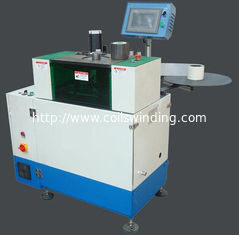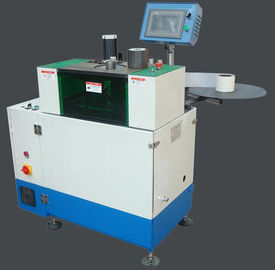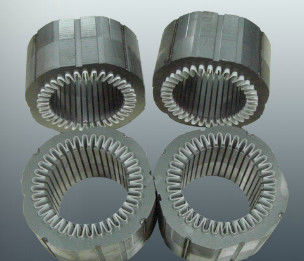|
|
Insulation paper insulation material mylar motor slot insulation inserting inseter machine
|
Product Details:
|
Insert insulation paper polyester to stator's slot to insulate the stator stack and winding.
Alta eficiencia, tecnología avanzada, estable performance.Help a reducir costes mientras mantienen la alta calidad
Laminated thickness of stator
Lamina espessura: 10mm-60mm
Max outer diameter of stator: Φ 160mm
Diameter of stator: Φ 40mm- Φ 80mm
Height of edge folded: 2.5mm-4mm
Max insulation paper's thickness: 0.35mm
Feeding length: 12mm-45mm
Tack time: 0.5-0.7s/slot
Input: 380V/50Hz
Power: 0.75KW
Machine productivity: around 1500pcs/8hours
Dimension: 1150mm × 1000mm × 1500mm
Weight: ≈ 400kg
The insulation class defines what kind of material is being used according to temperature operation. Standard motors are manufactured according to Isolation B.
For the insulation class and temperature, please refer to below table,
Insulation class A E B F H
Max Tem(℃) 105 120 130 155 180
Winding rise Tem(K) 60 75 80 100 125
Performance(℃) 80 95 100 120 145
For example, when customer use insulation paper (polyester) DMD,PMP or other insulation material such as powder, varnish they could consider the motor's insulation class accordingly.
Covering pumps,compressor,dries,exhausters,transporters,mixers,grinder,mills,fan and other kinds of motors.
Below is the test report the DMD paper
![]()
The insulaiton materials are mainly used as a slot liner,slot closure,phase and turn-to-turn insulation in low or medium voltage electrical motors.Besides it is also used as interlayer insulation in transformers and other electrical appliances.
Electrical Insulation - Wiring, Sleeving & other Electrical Sheilding Products. These products are used in electrical applications to insulate high voltage current from surrounding areas. These products are typically known for dielectric strength, arc resistance, thermal performance and insulating properties. Common applications include dry and oil-filled transformers, switch gears, relays, wire wrap, welding apparatus, electrical fixtures, commercial & residential electrical, lighting systems and more. These products are known for their ability to insulate electrical current, withstand mositure and corrosion, and resist arc and flame. Many of these materials can serve as practical and safe insulators for low to moderate voltages (hundreds, or even thousands of volts).
Contact Person: Ms. Emily
Tel: 86-18019121458
-
Winding BLDC Stator Four Pole Shaded Stator Winder 4 Poles Arm Needle Winding Machine
-
Ventilador Ocilante Table Fan Pump Compressor Stator Automatic Coil Winding Making Motor Manufacturing Machine
-
Motorcycle Magneto Engine Generator Stator Winding Machine Coil Winder WIND-MW-4
-
Three Needle BLDC Stator Winding Machine Segment Muti 6, 9,12 Poles Stator Segments Winder
-
Coil Forming Machine For Pump Compressor WIND-160-HW
-
Insulation Band Paper Nomex Forming And Cutting Polyester Film NPN DMD Pump Isolation





